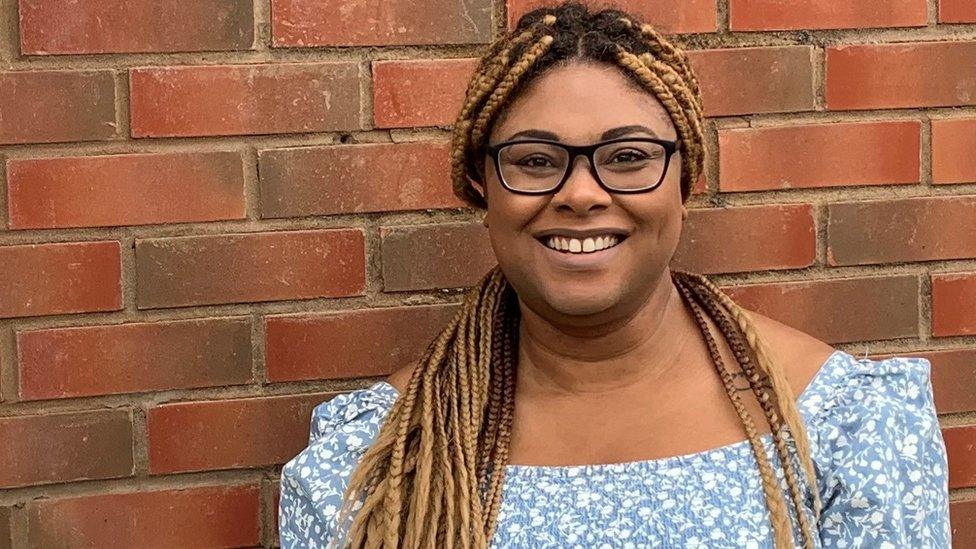University offers less likely for more diverse students
- Published
Pupil looking for uni 'suitable for a black person'
Young people have said when applying for university, fitting in is just as important as their course.
David, 18, said he has been looking for places "suitable for a place for a black person", whilst classmate Poppy does not want to "feel like the token".
Women, ethnic minorities and those from disadvantaged backgrounds have been found as less likely to be offered an undergraduate place in Wales.
Universities Wales said a number of factors contribute to the gap.
They added they account for student's "circumstances and backgrounds" when making offers.
Out of the 132 universities listed by UCAS in the UK, just nine had a higher offer rate for black applicants.
The most recent data shows all Welsh institutions had a higher offer rate for white applicants than black applicants.
Students from an Asian or mixed background or an ethnicity classed as "other" were also less likely to be offered a place at the majority of universities.
The data also shows in 2020 all Welsh universities had a higher offer rate for men than women who applied, although women make up two thirds of submitted applications.
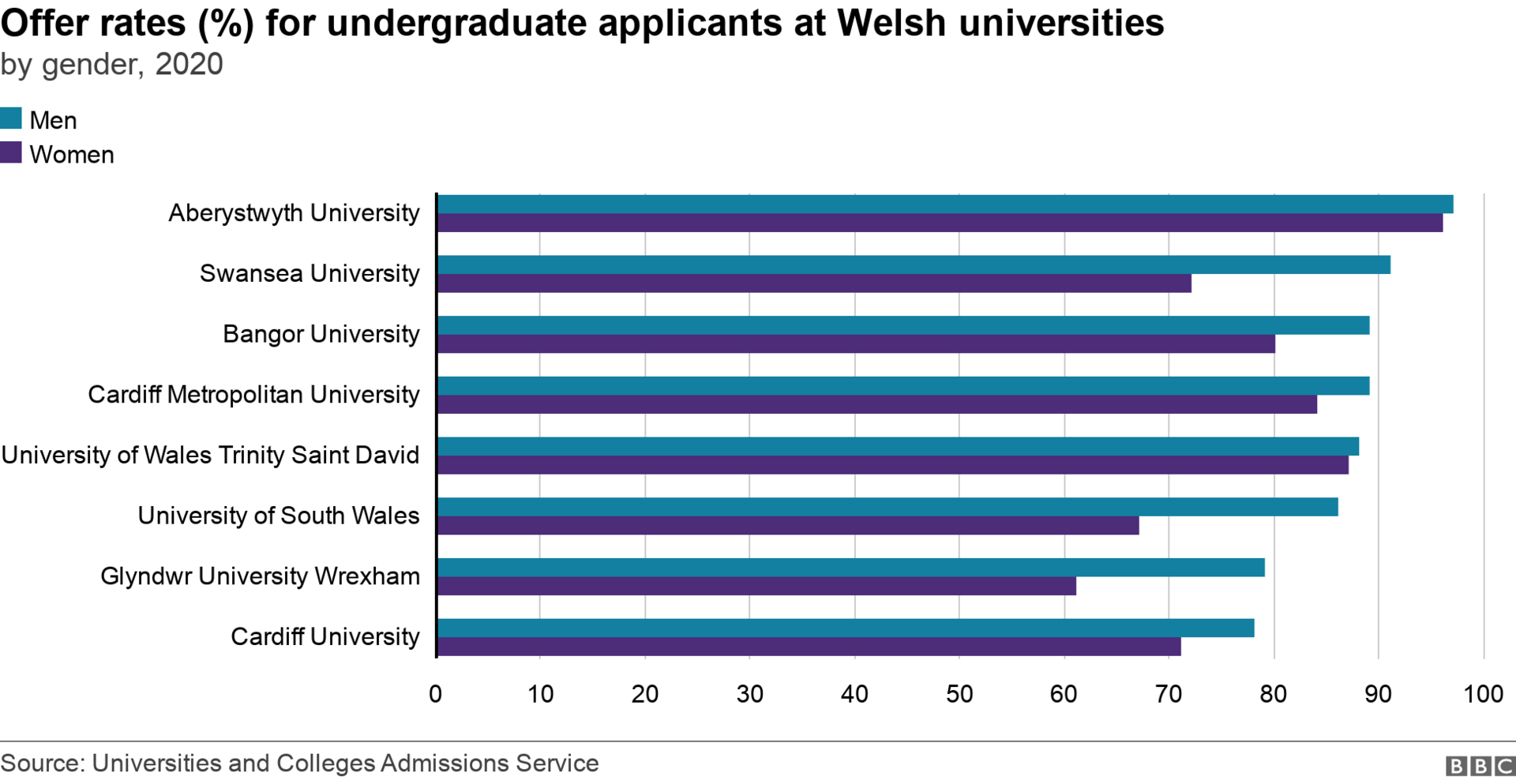

'Diversity matters'
Students at Llanwern High School in Newport already grappling with applications for university say the demography of the universities they are looking at is one of the key factors influencing their choices.
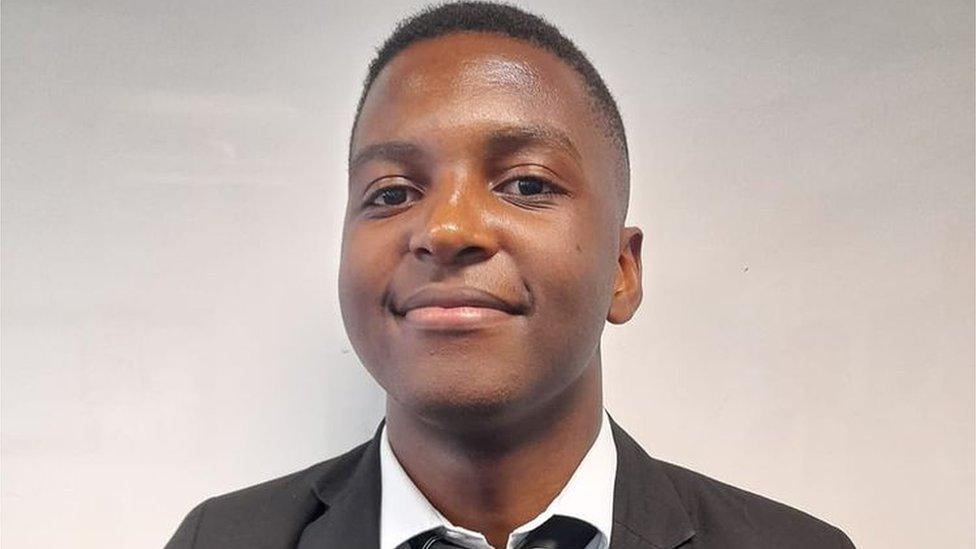
David said he is applying for places that suit him
David is hoping to study aerophysics, and is looking at universities in London, Birmingham or Manchester.
He said: "When you're looking for universities you have to look for a place that suits you. Sometimes looking for that place might not be on paper the best university, but it's the best university for you.
"I know that's not good or fair, but it's what I've done to have the best university experience."
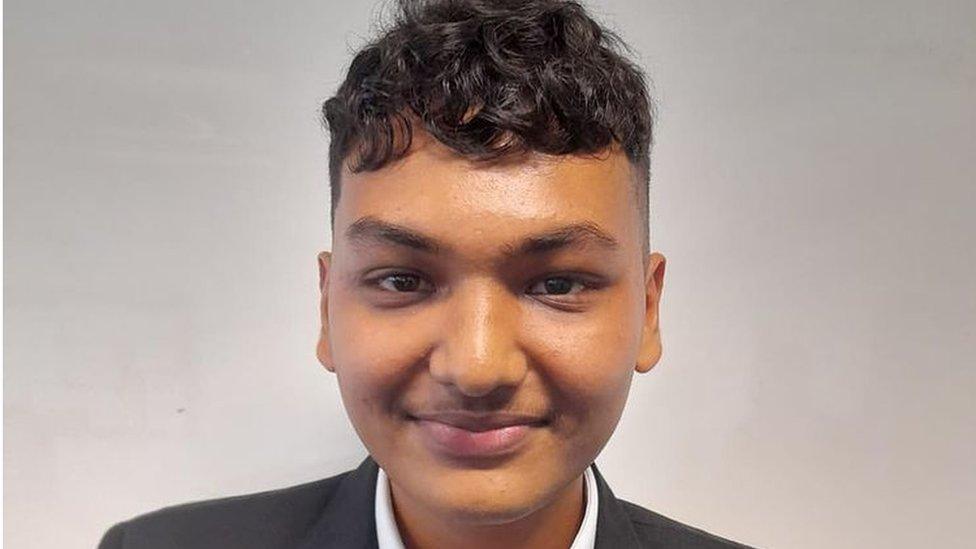
Shiraz was not going to apply for university but now wants to study medicine at Oxford
Shiraz, 17, wants to study medicine at Oxford and said the diversity of a university's student population is something he considers.
"Going to a university that's diverse can make me feel confident in my culture and my skin colour," he said.
"I didn't want to apply to university beforehand. But now I'm determined and I have that drive and motivation to prove that someone like me can get a place in one of the most competitive degrees in the whole of the UK."
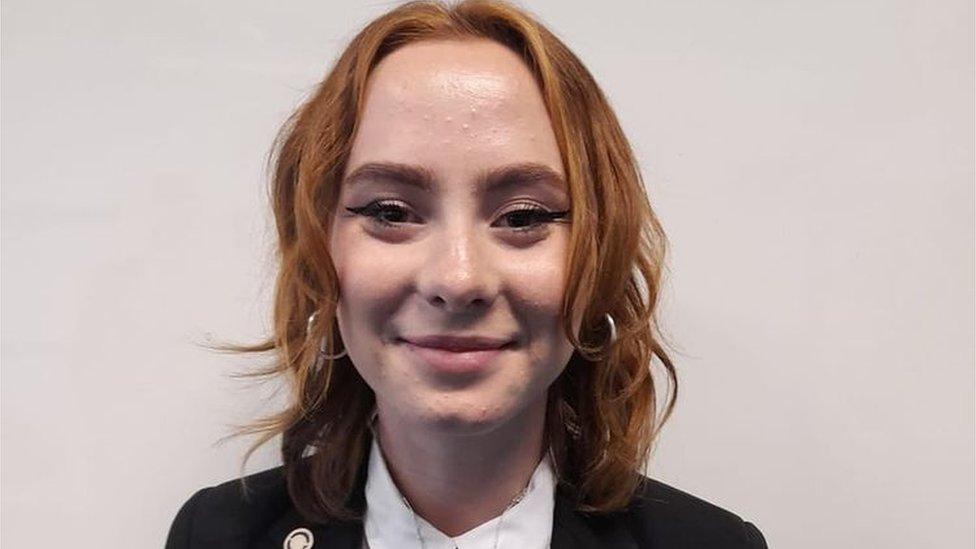
Poppy said it "is a shame" that studying abroad for her would be dependant on diversity schemes
Poppy, 17, wants to study humanities at Cambridge University or in the US.
She said: "It's a shame that as a state school student that I have to rely on social mobility programmes to help me with that university application.
"It should be down to the institutions to make sure that that barrier doesn't exist and that they're also accessible for students who might not even have access to the social mobility programmes."

Who gets into university?
The most recent data shows all Welsh institutions had a higher offer rate for white applicants than black applicants.
Students from an Asian or mixed background or an ethnicity classed as "other" were also less likely to be offered a place at the majority of universities.
However, across Wales and the UK, black and ethnic minority pupils are more likely to apply to and attend university.
Out of the 132 universities listed by Ucas, just nine had a higher offer rate for black applicants.
A total of 55 universities had a higher offer rate for Asian applicants compared to white students according to UCAS data, including only one in Wales - Wrexham Glyndwr University.
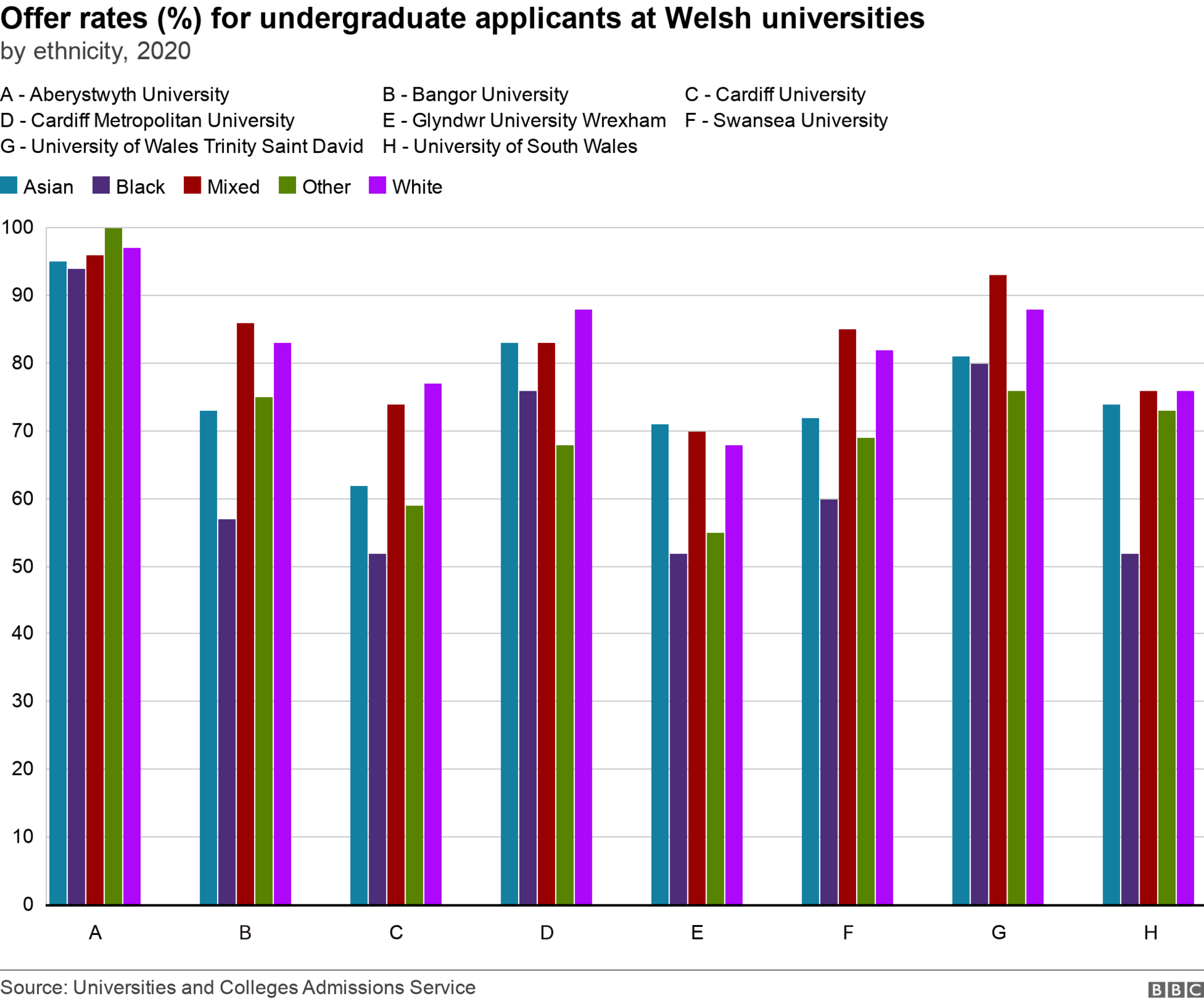

The data also found a gap in Wales and across the UK between the rate of offers given to those from neighbourhoods with greater participation in higher education and those from more deprived backgrounds.
Dr Jason Arday, an associate professor of sociology at Durham University, said the figures highlight that higher education is "systematically disadvantaging particular minority groups" through unconscious bias of admissions teams and programme leaders.
"Black and ethnic minority students have the grades but are not getting on these courses," he said.
"There isn't a fairness in that process."
He said quotas could help close the gap and after the murder of George Floyd, universities in the UK are beginning to address issues of racism within their institutions.
"There is a small groundswell of hope where people are forcing change."
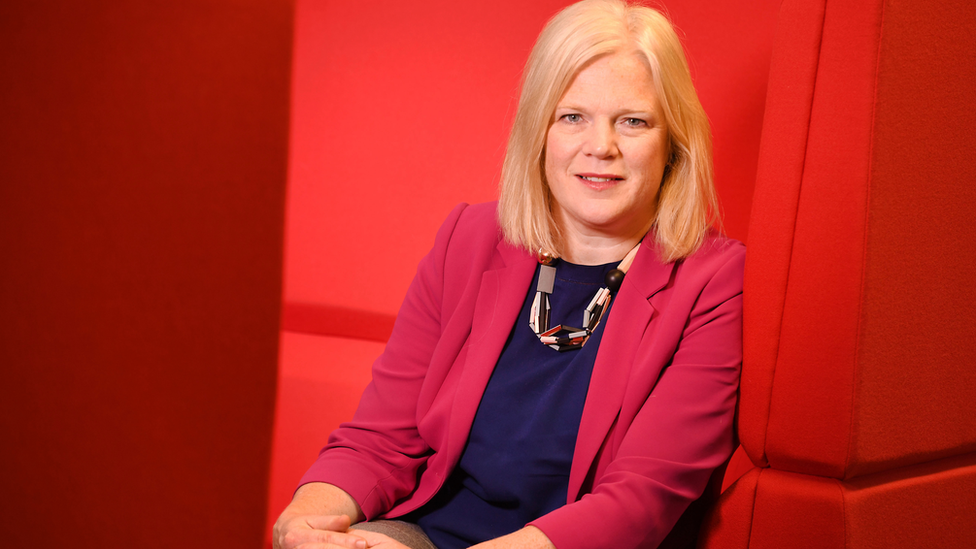
Clare Marchant from UCAS said course choices could play a part in the figures
UCAS' chief executive Clare Marchant said applicants from ethnic minority backgrounds are more likely to apply for more competitive courses but teachers, local government, higher education institutions and UCAS can "all be doing more" to close the offer rate gap.
She said: "It's about how we promote diversity and how we raise aspirations and say actually, 'The world is your oyster, you can achieve anything if you put your mind to it'.
"That's how we'll get aspiration across everybody, not just an elite."
What about women?
Across the UK, just 37 universities had a greater offer rate for women than for men, including Oxford and Cambridge.
Despite lower offer rates at university, women make up 56 percent of the student population at Welsh universities.
Ms Marchant said this could be explained by women tending to apply for more oversubscribed courses.
She said: "The attainment gap for males and females starts really early on. So back in early years, all the way through primary and secondary, females are achieving just that little bit more.
"When we look at progression to higher education, we potentially see more women that are looking at highly selective institutions and highly selective courses and so therefore you'd expect to see some difference in terms of offers coming back."
Amanda Wilkinson, Director of Universities Wales said universities "have a responsibility to ensure we are doing all we can to tackle inequality and support people of all backgrounds".
"All universities in Wales are actively working towards progressing race equality through Advance HE's project on race access and success. They're also on an active path to working to achieve the Race Equality Charter," she said.

THE LONG WALK HOME: 20,000 miles, 4 years, 1 man
TRAPPED UNDERGROUND: Gleision Mine Disaster- 10 years on

- Published13 August 2021
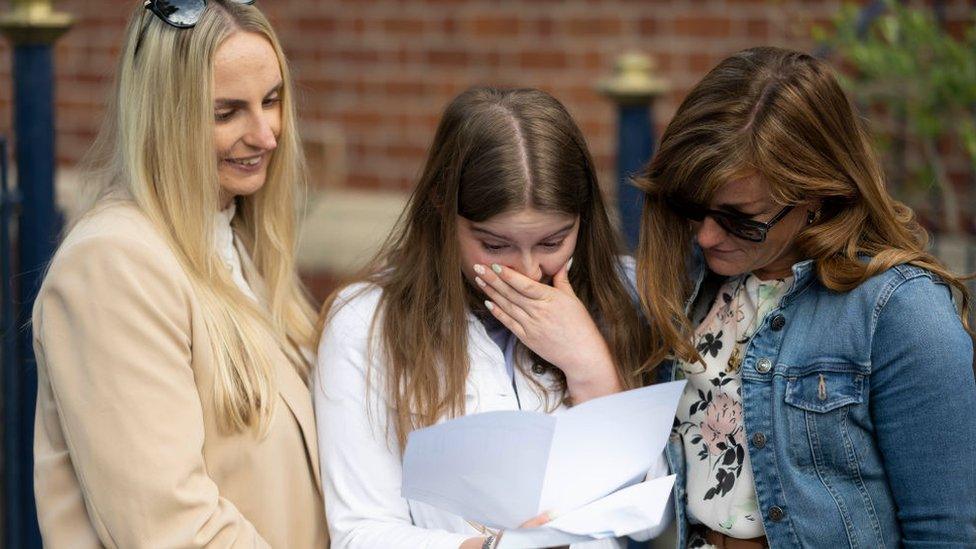
- Published10 August 2021
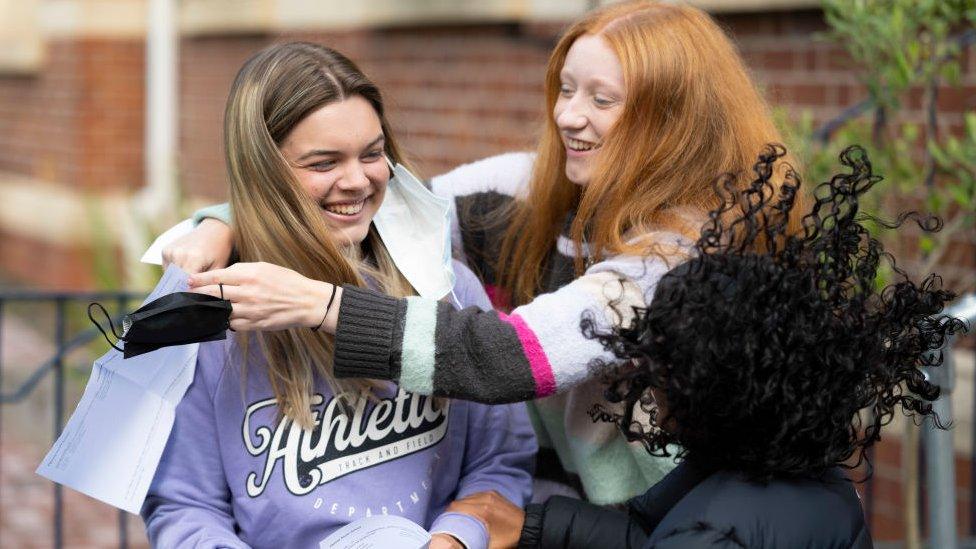
- Published27 July 2021
